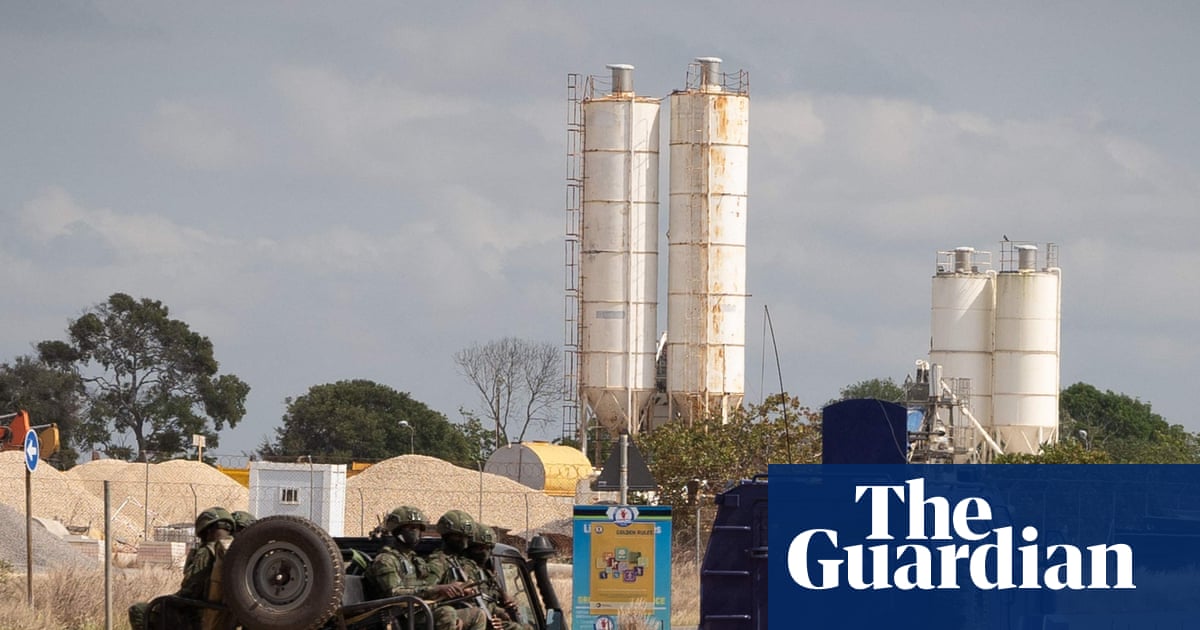The Australian government has signed a $400m deal with the government of Nauru allowing it to deport hundreds of foreign-born criminals whose visas were cancelled on character grounds.
The home affairs minister, Tony Burke, travelled to Nauru on Friday to sign a memorandum of understanding with president David Adeang, which states Australia will pay about $70m a year in addition to an upfront fee.
The deal relates to about 280 noncitizens in the Australian community who are known as the NZYQ cohort, who previously faced indefinite immigration detention. These people could not be deported to their home countries because they faced persecution, or because those countries refused to accept them.
In November 2023, the high court ruled it was unlawful for the government to indefinitely detain a person if there was “no real prospect” of them being removed from the country “in the reasonably foreseeable future”. The ruling saw a cohort of individuals released from immigration detention into the community.
In a statement uploaded to the home affairs department website on Friday afternoon, Burke said the deal “contains undertakings for the proper treatment and long-term residence of people who have no legal right to stay in Australia, to be received in Nauru”.
Sign up: AU Breaking News email
The statement said Australia’s funding would “underpin this arrangement and support Nauru’s long-term economic resilience”.
“Anyone who doesn’t have a valid visa should leave the country,” said Burke in a statement. “This is a fundamental element of a functioning visa system.”
Greens senator David Shoebridge accused the minister of “dumping this on a Friday when no one is looking”.
The statement announcing the deal was uploaded to the department’s website but not widely shared with the media. There was no press conference outlining the deal.
“At a time when we should be building partnerships in the Pacific based on equality and respect, the government is instead forcing our smaller neighbours to become 21st century prison colonies,” Shoebridge said.
Australia and Nauru struck a financial deal to resettle three members of the NZYQ cohort in February, who were described by the federal government as violent offenders.
At the time, Adeang said the three men had “served their time” in Australian prisons and were no longer subject to any punishment. They were granted 30-year visas and the right to settle and work in Nauru.
“Australia is trying to send them back to their country but they are not wanted back home,” Adeang said in February. “So we accepted them from Australia. They are not Australian and Australia doesn’t want them.”
But the three men have lodged a series of appeals against their deportation, after they were found not to be refugees and not owed protection.
after newsletter promotion
This new memorandum of understanding provides the basis for more members of the NZYQ cohort to be deported to Nauru. It is not known whether future deportations will be subject to legal challenge.
Earlier this week, the federal government introduced an amendment that would explicitly remove procedural fairness in deportation decisions for foreign-born criminals, including those in the NZYQ cohort.
On Thursday, Burke said the legislation would “expressly exclude procedural fairness from applying” when the government sought to deport noncitizens who have lost their visa.
Speaking to parliament, Burke said principles of “procedural fairness” needed to be suspended in some cases because those provisions “are being used by noncitizens to delay and frustrate their removal, at cost to the commonwealth in circumstances where it is neither necessary nor appropriate for it to continue to apply”.
Burke said the bill would mean that actions taken by government in order to resettle someone in a third country “are not conditioned on an obligation to afford procedural fairness”.
The Senate on Thursday rejected a Greens push for an inquiry into the legislation, which Shoebridge slammed as “one of the nastiest, meanest attacks” on multicultural Australia.
Shoebridge also accused the government of trying to “sneak through” the legislation, which was introduced just an hour before the government announced Asio’s assessment that Iran had directed antisemitic attacks in Australia.

 3 months ago
49
3 months ago
49

















































